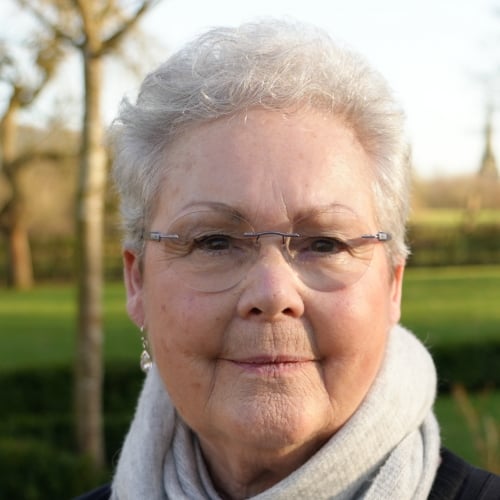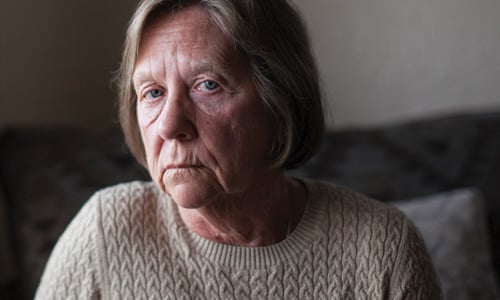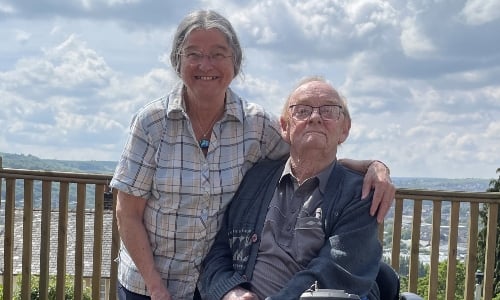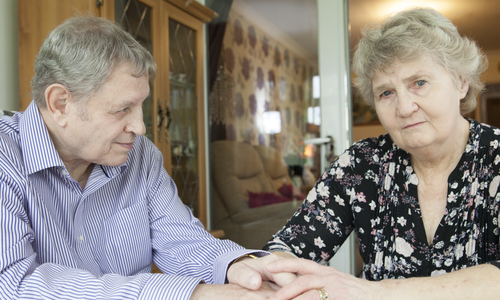Carers Week is an annual campaign that aims to raise awareness of unpaid carers by highlighting the challenges they face, and celebrating the contribution they make to families and communities throughout the UK. This year’s Carers Week focuses on recognising and supporting carers in the community.
Why is Carers Week so important?
Carers Week is the largest annual celebration of carers, and is a chance to recognise the huge contribution unpaid carers make to society. The past three years have been especially difficult for carers, with both the pandemic and the cost of living crisis adding extra complications to the existing challenges that often come with caring.
Care is something that affects so many of us. As many as 10.6 million people provide some form of unpaid care across the UK, and these unpaid carers are propping up the care system: the cost of the free support provided by unpaid carers equates to £162 billion each year. The amount of time spent on caring is also going up: our recent report found that 30% more unpaid carers are now providing over 50 hours of care per week compared to October 2020. And it’s taking its toll, with 4.87 million unpaid carers worrying about the impact of caring on their physical and mental health. 1.1 million older carers are already living with a long-term illness or disability of their own.
It's essential that carers are respected for all they are doing, given the support they need, and that their challenges are properly recognised. This Carers Week, along with partner charities, we are calling on the Government to establish a cross-Departmental Ministerial Working Group on unpaid carers. This would allow the Government to better coordinate and publicly demonstrate its support for unpaid carers.
Janet’s story
Caring can impact all aspects of a carer’s life, from their health to their finances and their relationships. While carers make a huge contribution to society, it often comes at a cost. Ahead of this year’s Carers Week, we spoke with Janet about her experiences as an unpaid carer. Janet spent years caring for her late husband Keith, who had dementia, and knows all too well the impact that caring can have. “You lose your identity,” she told us.

You start life as a daughter, become a wife, then a mother, and then a grandmother, and then suddenly you become a carer, and your retirement dreams and all your plans immediately disappear.
Caring for her husband took a huge physical and mental toll on Janet. “I’m turning 80 this year and I have never felt emotions that strong in my life,” she says. “In life you expect to have ups and downs, and problems, but the emotional intensity and the time spent caring for your loved ones goes on for years, day in, day out, and your resilience is tested beyond belief. The death of my father, the death of my mother, and then caring for both my sister-in-law and husband became the most stressful times in my life.”
Being an unpaid carer without the right information and support can make things even tougher. When Janet’s husband was initially diagnosed, she wasn’t sure where to turn or what help she could get. “The thing is that once you’re discharged from a memory clinic there is nowhere else to go. I was left, and we just didn’t know where to turn to.”
For Janet, a huge turning point was when she began seeing herself as an unpaid carer. She was connected to Empowered Carers, which works in partnership with Age UK Salford and provides support to family caregivers. Janet describes her counsellor as her “saviour” and says that she was supported by her until her husband passed away. It was through this support that she began to identify as an unpaid carer and was able to access vital benefits and services.
“I never really considered it [before],” she says. “I‘ve got old fashioned values, I never ever contemplated not doing it [caring].” Her counsellor helped signpost her towards the services and benefits she was entitled to as an unpaid carer. This experience has shown her how important recognising carers is, both in terms of accessing support, and also feeling seen and appreciated.

It is about being unpaid, but it’s also about not being appreciated – people not recognising the actual service you are giving, and the money you are saving.
Taking action
Polling for Carers Week found that roughly 19 million people in the UK have provided unpaid care or support to an older, disabled, or seriously ill relative or friend, but have not identified themselves as a carer. This accounts for 73% of the people who currently provide unpaid care or have provided care in the past. It means that the vast majority of unpaid carers could be missing out on the kind of information, support, or advice that could make a real difference to their day-to-day lives, like it did for Janet.
No carer should go without the support and recognition they deserve. Age UK will support the call for cross-Government action, and will continue to campaign for more support for unpaid carers to ensure they’re able to look after their loved ones without impacting their own health and finances.
We're here to help
Caring for a loved one can be overwhelming, but you're not alone. Get support through your local Age UK, by reading our information guides, or by calling the Age UK Advice Line on 0800 678 1602.






